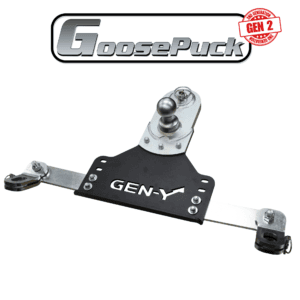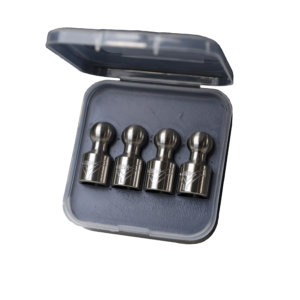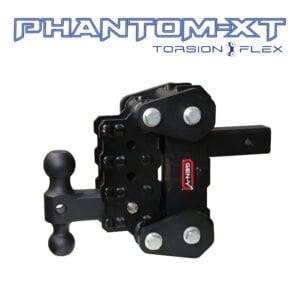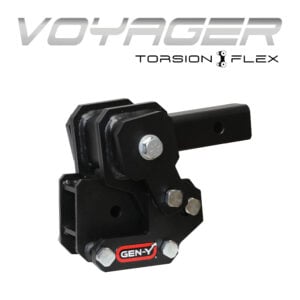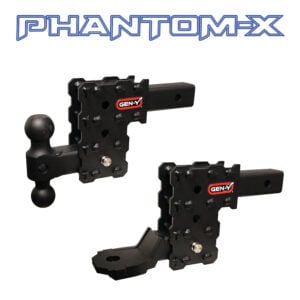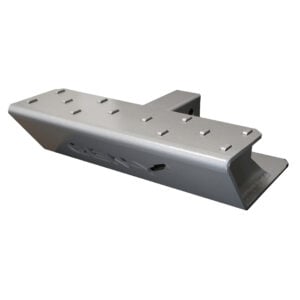Towing is a great method of transportation. From moving items from one place to another to pulling a travel trailer or camper across the country, being able to tow is a perk of your vehicle, you should definitely be taking advantage of. However, to tow effectively, you need a hitch, and there are a ton of options available. Choosing the right hitch for you and your vehicle isn’t just a matter of selecting a brand but also purchasing the correct size. Ordering a hitch that’s even a ½” off could result in an ineffective and dangerous connection. If you’re asking, “what size tow hitch do I need,” then here’s what you need to know!
What is a Hitch Ball?
A hitch ball, also known as a trailer ball or a tow ball, is the little round metal ball you’ve probably seen sticking out of the back of people’s trucks. The spherical shape of the hitch ball allows the trailer to pivot and turn as it follows around your tow vehicle. However, while the size of hitch balls is generally the same, there are some exceptions. Furthermore, they come in different weights that may affect your towing experience.
What is a Ball Mount?
Generally, the hitch ball doesn’t attach directly to your vehicle. Rather it attaches to a ball mount. A ball mount is a removable platform that slides into the receiver tube installed in the back of your vehicle. This platform gives you the ability to adjust your hitch ball up and down to match the height of your trailer. Fully adjustable drop hitches, like those at GEN-Y, further improve the versatility of your hitch and make it easier to switch from one trailer to another.
What is Towing Capacity?
Now that you understand the components involved in towing, it’s important to look at the individual towing capacity of different hitches. Generally, you’ll come across three different sizes:
- Light-Duty – 1 ⅞.”
- Medium-Duty – 2″
- Heavy-Duty – 2 5/16″
The different sizes are manufactured to handle different towing capacities.
Choosing the Right Tow Hitch
To choose the right hitch, you need to consider how much weight you’re towing. For instance, if you own your own lawn-care business and regularly tow your equipment around, you won’t need as much towing capacity as someone who drives their boat to the lake every weekend.
While hitch balls are available for up to 32,000 lbs on average, you also need to consider the weight capacity of your towing vehicle. Your gross vehicle weight rating (GVWR) can be found in your owners manual and will help you identify what size hitch you’ll need according to its capacity. Your trailer will also have a GVWR, and the weight rating of your tow ball must match or exceed it.
Once you’ve identified the GVWRs of your vehicle and trailer, you can locate the correct hitch size you need for safe towing.
If you’re unsure about your GVWR, or can’t find the correct hitch, reach out to our team of qualified professionals for help identifying the right hitch for you. We have a wide selection of hitches, perfect for multiple occasions, and we can help ensure that you’re set up with the best possible option for you and your needs to keep you and your cargo safe on the road!
Let Us Help!
Gen-Y Hitch exists to better the lives of our customers, dealers, vendors, employees, and the automotive industry. We will always put our customers’ needs ahead of our own. Contact us today and let us help you!



